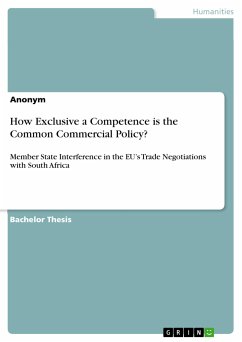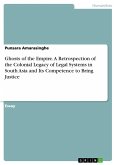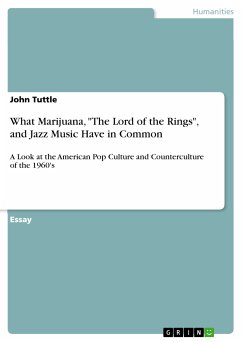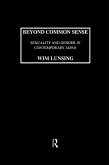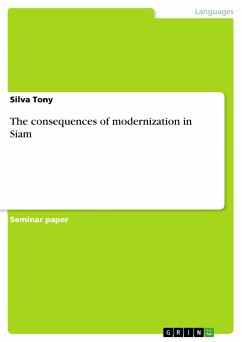Bachelor Thesis from the year 2012 in the subject Cultural Studies - European Studies, grade: 1,4, Maastricht University, language: English, abstract: This paper examines to what extent the EU member states (MS) were able to influence the EU's role during the trade negotiations with South Africa and, thus, objected the exclusivity of the European Commission in the respective policy domain stipulated by Art. G(113(3)) TEU . The powerful position of the EU within the context of the TDCA negotiations presents a good opportunity to investigate the impact of the MS during this process. Hence, the first chapter outlines the concept of actorness coined by Jupille and Caporaso (1998) which serves as the analytical framework for this paper. The authors defined four aspects of the capacity of the Union to act which are applied to the EU in the field of study: recognition, authority, autonomy and cohesion. The second chapter presents a thorough analysis of the EU's capacity to act on the bilateral level of trade negotiations, in particular the TDCA with South Africa. Here, special focus is placed on the involvement of the MS to evaluate the extent to which the Common Commercial Policy is dealt with by EU institutions exclusively. Lastly, the conclusion summarizes the findings allowing an assessment of the extent to which the legally prescribed sole decision power in the EU's trade policy was in fact apparent in the process of negotiating the TDCA.
Dieser Download kann aus rechtlichen Gründen nur mit Rechnungsadresse in A, B, BG, CY, CZ, D, DK, EW, E, FIN, F, GR, HR, H, IRL, I, LT, L, LR, M, NL, PL, P, R, S, SLO, SK ausgeliefert werden.

